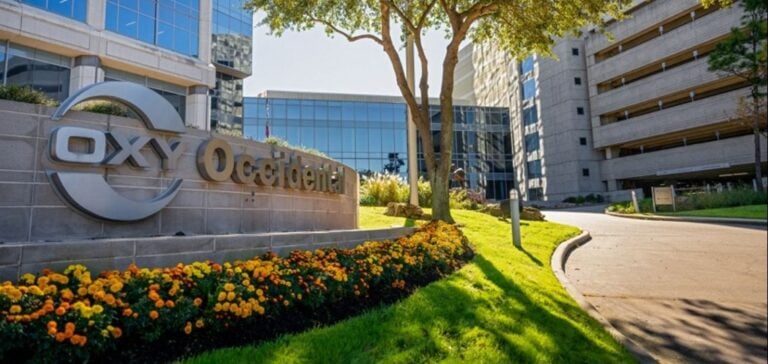Occidental Petroleum, in collaboration with Enterprise Products Partners, recently announced the creation of a vast CO₂ pipeline network in Southeast Texas. This initiative aims to support the ongoing carbon capture and storage hub being developed in the region and additional third-party partners interested in reducing their emissions. The project, currently in the implementation phase, will allow for the transportation of CO₂ captured by facilities located near the Houston Ship Channel, a major industrial zone in the United States.
The pipeline network, to be developed by Enterprise Products Partners, will transport CO₂ to the 1PointFive carbon sequestration hub, Occidental’s dedicated subsidiary for carbon capture and storage. According to the company, these pipelines will be co-located with existing infrastructure in the region, thereby facilitating logistical integration and minimizing additional impacts on the territory. This development aligns with a decarbonization strategy that takes into account existing infrastructures, optimizing both costs and operational efficiency.
Federal funding and carbon capture objectives
Occidental’s carbon capture project receives significant support from the U.S. federal government. Indeed, the United States Department of Energy (DOE) has allocated $500 million to 1PointFive to develop its Direct Air Capture (DAC) hub in South Texas. This hub aims to capture 500,000 metric tons of carbon annually, thus contributing to national efforts to achieve carbon neutrality. The federal investment is part of a national strategy to promote carbon capture technologies for industries struggling to reduce their emissions through conventional means.
Direct Air Capture (DAC) is an advanced technology that allows for the capture of CO₂ directly from the atmosphere. Unlike traditional capture methods, which generally focus on industrial emissions, DAC captures ambient carbon, offering a reduction solution with global impact potential. This type of technology is gradually becoming a central element in the U.S. decarbonization strategies, especially in hard-to-decarbonize sectors such as petrochemicals and steel production.
Third-party partnerships and carbon credit pricing
So far, Occidental has not specified which third-party partners will supply the captured CO₂ in the Houston area, but further announcements are expected as the project progresses. These partnerships could include industrial companies nearby, seeking to reduce their emissions sustainably and to benefit from the economic opportunities offered by the commercialization of carbon credits.
According to recent market assessments, the price of carbon credits generated by direct air capture facilities, such as those operated by Occidental, was estimated at around $145 per metric ton of carbon. This figure, however, may vary depending on the growing demand for high-quality carbon credits, particularly those certified by DAC. Additionally, the carbon credit tracking website, CDR.fyi, recently listed a spot price of $470 per metric ton of carbon for credits captured directly from the air, demonstrating the growing interest in these technologies.
Recent commitments and growth perspectives
The company 1PointFive has already made notable progress in terms of carbon credit sales. To date, 1PointFive has captured and delivered 100 metric tons of carbon via DAC, with cumulative sales of credits reaching 1.3 million metric tons. Among recent significant transactions, Microsoft acquired 500,000 metric tons of DAC carbon credits last July, a clear indication of major corporations’ commitment to reducing their carbon footprint and their support for new decarbonization technologies.
The United States Department of Energy recently proposed a carbon management strategy aimed at encouraging the deployment of capture technologies for priority use cases. This approach is especially intended for industries where there are few or no alternatives to emissions reduction. Occidental and its partners’ initiatives fit well within this strategy by providing a tangible solution to current environmental challenges while paving the way for new economic opportunities.






















